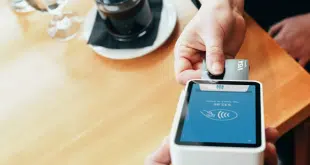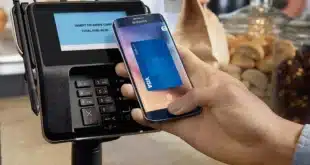Leading mobile remote deposit capture vendor Mitek Systems Inc. says it has the documentation to disprove allegations of patent-infringement and other claims that USAA, the pioneering financial institution in remote deposit capture, filed against it in a lawsuit last week. The force behind the dispute, according to Mitek president and chief executive James DeBello, is negotiations over USAA’s continued use of Mitek technology.
“We do believe it is directly related to business negotiations,” DeBello tells Digital Transactions News. “It was time to renew that license.”
In a brief e-mailed statement late Wednesday, a USAA spokesperson said, “USAA’s core values of service, loyalty, honesty and integrity drive its every action, including filing this lawsuit against Mitek. USAA is confident that the truth surrounding the innovation of mobile deposit technology will be revealed in a court of law.”
In a lawsuit filed in U.S. District Court in San Antonio, Texas, USAA accused Mitek of misappropriation of trade secrets, breach of contract, fraud and unjust enrichment in connection with Mitek’s Mobile Deposit software product. USAA said Mitek improperly rolled out the service using USAA technology that the bank disclosed to it under confidentiality agreements as they jointly developed RDC services beginning about six years ago. In mobile RDC, a consumer snaps a photo of the front and back of a check with a smart phone’s camera and uploads the images for deposit through a mobile-banking app.
USAA, a federal savings bank that serves a dispersed customer base of military personnel and their families, is seeking a declaratory judgment that it does not infringe on five Mitek patents and that they are unenforceable against USAA.
But, in a news release, Mitek countered that USAA’s Deposit@Mobile product infringes on Mitek patents. San Diego-based Mitek holds 12 patents, including five directly related to mobile imaging and deposit, according to DeBello. (On April 12, Mitek countersued USAA in U.S. District Court in Wilmington, Del., alleging USAA is infringing on its five Mobile Deposit patents.}
Mitek also called “dishonest” the claim in USAA’s suit that the bank was surprised about Mitek’s announcement of its mobile RDC product in its annual report for the fiscal year ended Sept. 30, 2008, and that it had made the announcement without USAA’s authorization. Mitek claims it kept USAA in the loop about its plans to develop a mobile RDC product that banks and credit unions could offer to their customers.
Mitek said it has e-mails from January 2008 showing that it informed USAA employees about the product, and that it received a positive response to its suggestion that it might work well with USAA’s existing, scanner-based RDC product (Deposit@Home). In February 2008, Mitek says company officials, including DeBello, visited USAA’s office to brief the company about Mobile Deposit.
“They’re falsely claiming ownership of certain aspects of our patent, in terms of what they consider their own development internally,” DeBello says. “We also believe they falsely claimed they were unaware of our technology in 2009.”
Preceding USAA’s filing of the lawsuit were negotiations on USAA’s license to continue using Mitek software. The companies disagree on how many mobile capture transactions are going through Mitek’s applications, which determines Mitek’s revenues. “In actuality there had never been a dispute over transaction count until recently, when they reconfigured how they count,” says DeBello. “We believe that this is really, fundamentally an action [driven] by business considerations.”
But in response, the USAA spokesperson refers to a section of the lawsuit that says the companies in 2007 amended an earlier licensing agreement to establish a perpetual software license and maintenance agreement that set volume tiers. USAA claims that under its terms, Mitek has overcharged it $381,000.
The case likely will head into a long period of fact-finding unless the parties come to a settlement. Bob Meara, a banking analyst at Celent LLC, sees a parallel between the USAA-Mitek spat and the coming of new check-clearing technology as a result of the Check 21 law in 2004, which triggered a number of patent lawsuits. Those suits didn’t stop technological advances, he says. “I suspect the same thing will occur,” Meara says. “I don’t think this thing will throw a wrench in the world of mobile deposit.”





